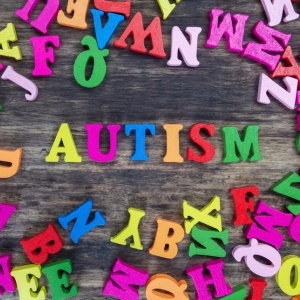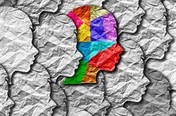
There will be differences in an autistic child's social skills, language and communication and behaviour that can be used to diagnose the disorder.
With autism, one becomes increasingly aware of symptoms in an older child and it soon becomes possible to observe which behaviours are present.
Symptoms are varied among children and may include:
Social skills
- Apparent lack of attachment to parents or other family members. The child seems to prefer playing alone and has an aloof manner.
- Demonstrates inappropriate social interaction or withdrawal and fails to form or maintain normal relationships.
- Apparent lack of awareness of, or indifference to, other people’s feelings
- Lack of awareness of boundaries, and often lack of response to being reprimanded (over time)
- Lack of eye contact or acknowledgement of others
Language and Communication
- A young child with autism may appear to be deaf and parents often have the child’s hearing tested.
- The child often skips the babbling stage, and starts to speak later than other children of the same age, or doesn’t develop speech at all. A young child will pull one by the hand to get a desired object, instead of using verbal communication.
- The child has no use or understanding of non-verbal communication and gestures, e.g. does not wave ‘bye bye’.
- The child often uses repetitive sounds, and if speech develops, it might be immature or unusual like combining single words into a giant word like “areyouhungry”.
- He/she could lose a previously existing ability to utter words or sentences.
- The child’s rate, pitch, tone or rhythm of speech is abnormal; he/she may use a sing-song or monotonous voice.
- He/she finds it difficult to initiate or maintain a conversation.
- He/she can't understand or imitate speech or gestures.
- He/she responds inappropriately to sounds (covers ears).
- There may be meaningless repetition of words or phrases. The child may echo what someone says, or often scripts from a TV programme, or someone else’s speech (echolalia).
- In a verbal child there might be pronoun reversal.
- The child could present with apraxia (inability to plan words – absence of speech).
Behaviour/Sensory
- Performs bizarre or repetitive movements such as rocking, hand twisting, finger twiddling, head banging, arm flapping, walking on tip-toe and staring.
- Develops specific compulsive routines or rituals.
- Becomes distressed or enraged by minor changes in the environment or in disruption of routines or rituals.
- Engages in self-destructive behaviour, such as head-banging or biting.
- Is hyperactive or lethargic.
- Preoccupation with or attachment to objects or one object; may become fascinated by unusual objects or parts of an object, such as the spinning wheels of a toy car.
- Engages in screaming fits.
- Unable to engage in fantasy or imaginative play such as role-playing and storytelling.
- Resists being held and cuddled; may scream to be put down; may have to be held on the hip (back arching off slightly). Displays an over or under-reaction to sensory stimuli.
- He/she might respond inappropriately in situations, e.g. laugh when scolded or hurt.
- Over or under-reaction to sensory stimuli, including avoidance of certain foods, dislike of haircuts or nail cutting, high pain threshold, eat normally non edible substances, restlessness, acute hearing, auditory sensitivity, etc.
Other commonly noted symptoms:
- Inappropriate laughter (often at night)
- Night time waking
- Slurred articulation
- Unstable gait
- Low muscle tone
- Fixed or averted gaze
- Dilated pupils
It is interesting to note the following things many of these children have in common:
- A love for vehicular toys
- Removing DVD covers from DVD boxes
- Running off in one direction on the beach
- A dislike of shopping centres and the need to be “trolley bound”
- Rewinding favourite parts of their favourite movies for hours and preferring the credits to the actual movie (often resisting a new movie)
- No delay in motor milestones and are generally quite agile
- A very good memory
- Switching on and off lights
- Love of water
Read more:
Reviewed by Dr Louise Lindenberg, MBChB (Stell), MFHom (UK). Integrative Medical Practitioner specialising in Disorders on the Autism Spectrum in children, Cape Town. February 2015.
Previously reviewed by Jenny Buckle, Reach Autism SA, (November 2010)




 Publications
Publications
 Partners
Partners












